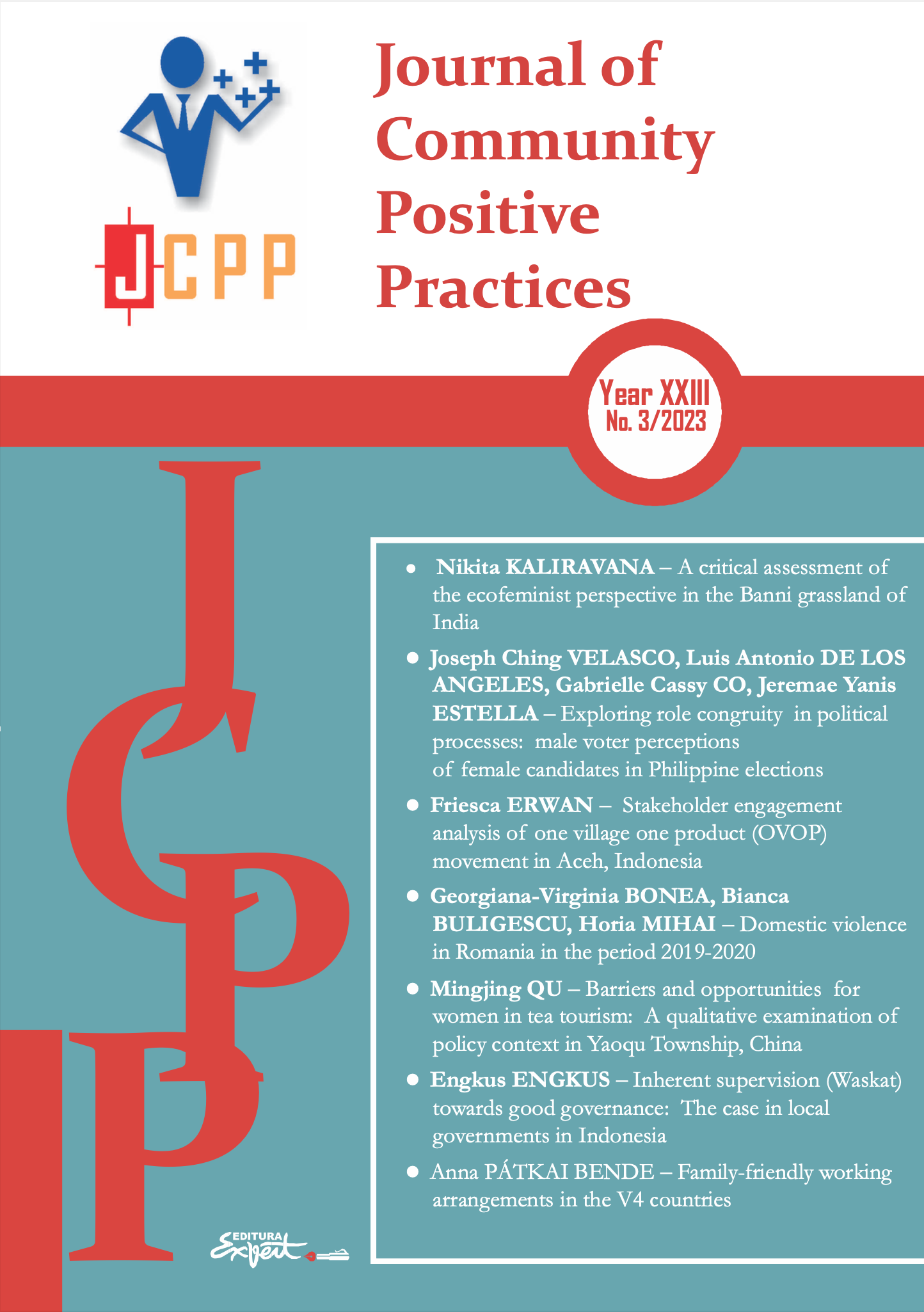Exploring role congruity in political processes: Male voter perceptions of female candidates in philippine elections
Exploring role congruity in political processes: Male voter perceptions of female candidates in philippine elections
Author(s): Joseph Ching Velasco, Luis Antonio De Los Angeles, Gabrielle Cassy Co, Fernando Diez EstellaSubject(s): Gender Studies, Government/Political systems, Electoral systems, Social development
Published by: Asociatia pentru Dezvoltare si promovare socio-economica Catalactica
Keywords: Filipino male voters; female candidates; elections; gender stereotypes; leadership qualities; perceptions; Philippines; role congruity;
Summary/Abstract: This article explores persistent notions regarding women in the Philippines, especially concerning executive positions historically dominated by male incumbents. The article delves into the historical and influences that possibly leads to the underrepresentation of women in executive roles. This also prompts questions about the underlying perceptions guiding Filipino voting choices. Using qualitative interviews with ten male voters, the study probes gender stereotypes' their impact on evaluating candidates. The participants are divided into two categories: male Filipino voters who support female candidates (VFF) and those who do not (NVFF). Findings reveal that both groups associate male figures with agentic attributes and female figures with communal qualities. Notably, their criteria for an ideal leader differ. VFFs prioritize candidates displaying a blend of agentic and communal traits, advocating for gender-neutral inclusive leadership. Conversely, NVFFs display a bias favoring male candidates, as they link agentic attributes with leadership and predominantly assign these traits to males. VFFs' viewpoints stem from experiences with capable female leaders, whereas NVFFs' preferences draw from religious and historical influences. This study enhances understanding of Filipino male voters' perspectives, serving as a foundation for future research. Furthermore, insights gained address and rectify unjust perceptions, fostering an environment that evaluates male and female candidates on equitable terms.
Journal: Jurnalul Practicilor Comunitare Pozitive
- Issue Year: XXIII/2023
- Issue No: 3
- Page Range: 13-26
- Page Count: 14
- Language: English

